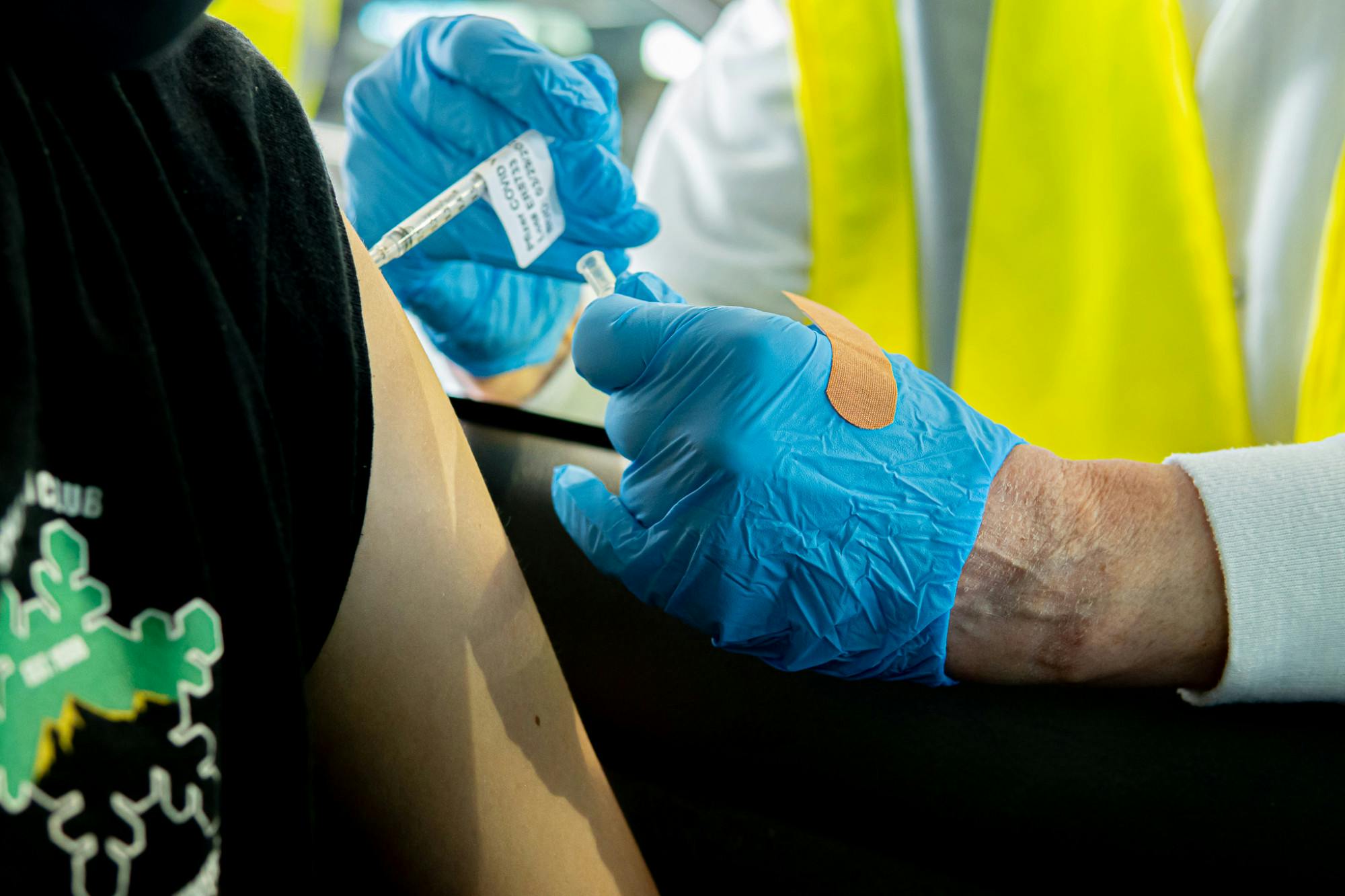Michigan's 7-day average of cumulative COVID-19 cases is leading the nation at about 469 cases per 100,000 residents as of Wednesday.
3,688 people are hospitalized with confirmed or suspect COVID-19 cases and 714 of them are in the intensive care unit. 385 of those patients are ventilated.
Despite these rising numbers, there have been no new restrictions put in place statewide. However, in Ingham County, there are recently implemented guidelines.
In a media briefing Tuesday, Ingham County Health Officer Linda Vail said that of the 1,300 cases in Ingham county last week 45% are in the 10-29 age group. With this age group leading in cases, the health department recommends a one-week pause of in-person learning for students in grades 6-12 on April 12. Vail said she encourages the youth to get vaccinated if they want less restrictions and to return to some sense of normalcy.
The Michigan Department of Health & Human Services will be hosting a drive-thru COVID-19 testing site that week for them and travelers returning from spring break on April 11 and 14. Although, traveling is not recommended.
Vail also said that:
East Lansing has the highest rate of COVID cases in Ingham county and the highest number of deaths at 58.
142 people are hospitalized in Sparrow and McLaren and 16 of them are in the intensive care unit as of April 6.
The percent positivity rate is over 15%, the highest since the beginning of the pandemic.
37.2% or 90,004 residents have received at least their first dose of the vaccine.
The prevalence rate of COVID has increased from 1.34 to 1.4 difference between Caucasians and African Americans and there is a 1.35 death rate between the groups.
Hispanic or Latino groups have a 1.33 higher COVID prevalence rate than non-Hispanic or Latino groups.
Michigan State associate professor Dr. Sean Valles studies the interplay of ethics and scientific evidence in population health and is worried about the surge in cases and who will be negatively affected by facilities and businesses reopening.
The updated Gatherings and Face Masks Order has been in effect since March 22. It requires face masks, but fully vaccinated people can remove them in residential spaces of up to 50 people.
“When people are saying we can start thinking about not just having different sets of rules for vaccinated people but also thinking about having different rules for all of society." Valles said. "I ask them ‘what about the ground situation has actually changed this week as opposed to four weeks ago so that we can actually act different around each other or set different policies?’”
He believes businesses are starting to reopen because the Pfizer and Moderna COVID-19 vaccines have proved to be effective at preventing infections and controlling the pandemic per a study released by the Centers for Disease Control and Prevention (CDC) March 29.
50% of Michiganders who are over the age of 75 have received both doses of the vaccine, but Valles is concerned about the other half.
“We’ve been doing this rollout of the vaccine so that people who are at higher risk were supposed to be getting access earlier, but we still only have coverage of a minority,” Valles said.
Valles also said reopening businesses and institutions is a racial and ethnic equity issue.
Included in the Michigan Department of Health and Human Services (MDHHS) epidemic order effective March 22 to April 19, entertainment venues can have up to 300 people indoors, gyms have reopened and outdoor arenas can have 20% capacity.
“From the very beginning of the pandemic we knew that frontline workers were disproportionately people of color, disproportionately people with lower income, disproportionately people who did not have health insurance," Valles said. "So basically the people who are going to be taking the brunt of the effects of this reopening are going to be disproportionately people who have been hurt from the very beginning and also people who have been hurt since the founding of the country or before."
Vail said in the media briefing that we can address disproportionate effects through equitable distribution of the vaccine and efficient distribution of the vaccine.
Valles questioned, "who's going to take the brunt of the harm from this as we take these new risks?”
Support student media!
Please consider donating to The State News and help fund the future of journalism.
Discussion
Share and discuss “No new statewide restrictions as Michigan COVID-19 cases rise, expert responds” on social media.







